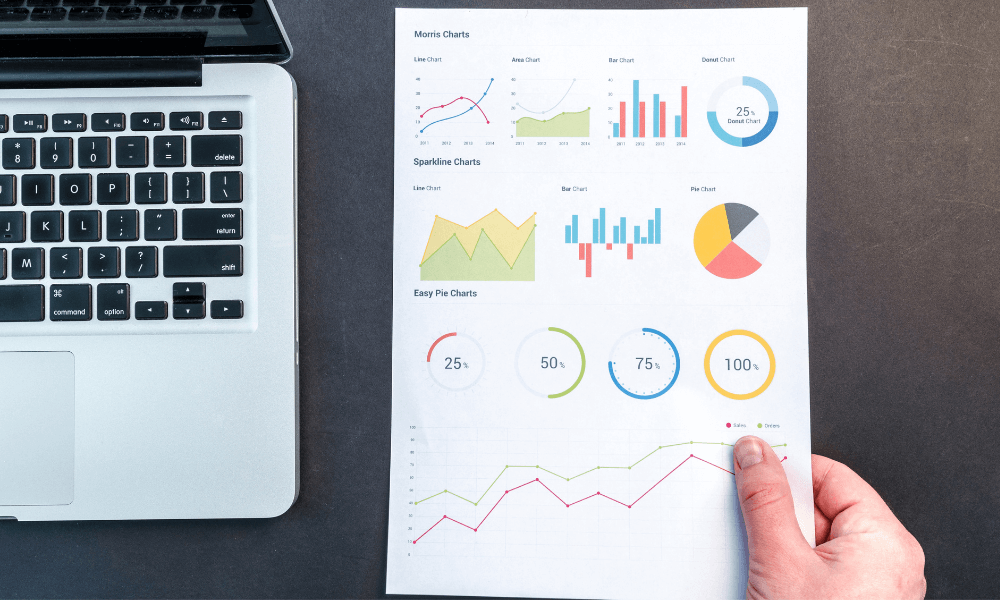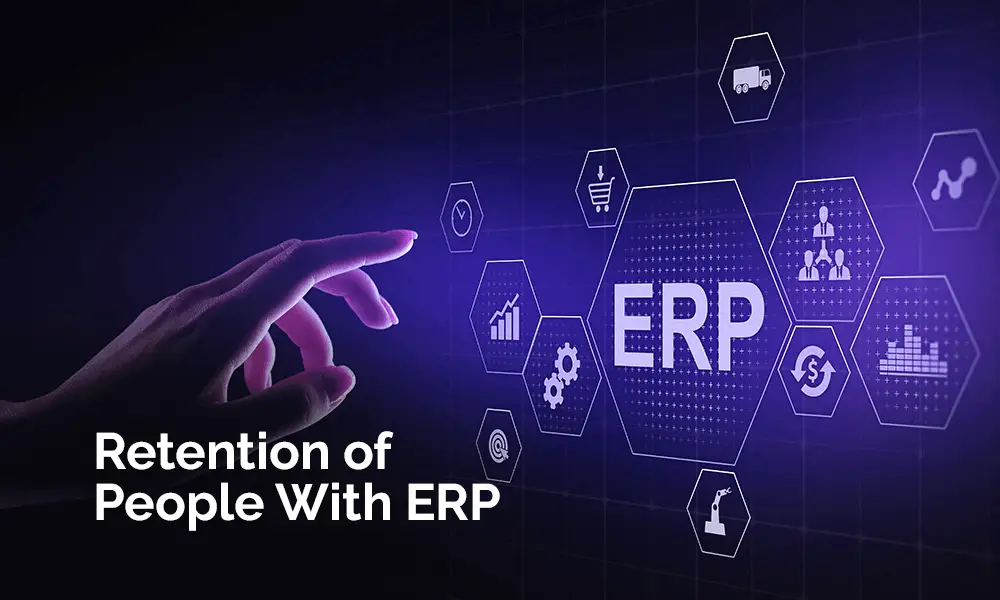Enterprise Resource Planning (ERP) software is not just another add-on business solution. It is the backbone of businesses that support customer, supplier, employee, leader, and business retention. Find out how!
The more you can automate and optimize your business operations from a leadership standpoint, the more you become relevant in the digital world. It enables you to lead from the forefront and give more value to your customers, suppliers, employees, and stakeholders.
While people are the key to business success, automation tools such as ERP systems are the best way to streamline processes and empower your team to provide the best products/service possible. There is a direct link between ERP and business success. Also, there is a direct line between ERP and the retention of people and processes. Let us connect the dots!
How Does an ERP Solution Help with Retention?
1. Retention of Customers
At the heart of every customer retention strategy lies an effective customer relationship management system (CRM). An ERP solution features CRM software integration that keeps track of all customer information, transactions, and conversations. This way, it is easier to build better relations and enable long-term customer satisfaction.
2. Retention of Employees
An ERP solution pulls employees out of manual excel sheets or such monotonous error-prone tasks and indulges them in more creative, innovative, and productive activities. It’s a win-win for employee experience and an employee retention step for a growing, smart company.
3. Retention of Leaders and Stakeholders
Although the CEOs, CFOs, and managers plan, introduce and implement ERP systems in the organization, their retention nowadays largely depends on such robust systems.
Top decision-makers of next-generation companies would like to work in a setup that has real-time access to data, improved productivity, 360-degree business visibility, and powerful business management systems.
See Also: How Do You Build Strong Customer Relationships?
4. Retention of Suppliers
Supplier relationship management is directly proportional to customer satisfaction. This means that happy suppliers foster better business processes, which leads to happy customers.
ERP systems help retain suppliers by managing lead times, quality adjustments, reliable predictive modeling, and supply chain management. If everything is done in order, happy suppliers and long-term relationships with them will no longer be a myth!
Last but not least,
5. Retention of Business Goals
ERP is not just about people. It is also about how well the business functions can be managed. ERP software gives clear visibility and complete control over every aspect of your business. You can capture critical information for immediate access and use it company-wide.
Ultimately, you can unify all data and departments information on one single platform and use it to make confident decisions and achieve all business goals.

10 Benefits of Enterprise Resource Planning (ERP)
ERP does help with the retention of everything related to business – people as well as processes. Undeniably, it is a business must-have in the 21st century. Here are a few ideas on how you can get the most out of it.
1. Adopt Cloud ERP Software
From good-to-have to must-have, cloud ERP software can be accessed anytime, anywhere. With an on-the-cloud ERP, you can generate reports, track performance, monitor inventory levels, and predict future demand.
Remote employees and professionals can all collaborate on a single platform – to work towards a better customer and supplier experience. Plus, business goals can be securely achieved with data privacy. Is retention a thing to worry about with such capabilities?
2. Customize ERP
To retain the intrinsic core of your business (and ultimately customers and your team), you need to focus on your specific niche. ERP can be customized as per your unique industry and organizational requirements. This helps you focus only on what matters to your business and cut the clutter.
See Also: How to Generate Leads for Your Small Business
3. Leverage the Power of AI, Machine Learning and Advanced Technology
Having ERP means that your business is intelligent. But in 2022, it is time to stay ahead of what’s next. Intelligent ERP is the name of the game these days. Incorporating AI, ML, interactive assistance, etc., into ERP software has created intelligent systems that aim to transform business data for process improvement.
Adding automation capabilities to ERP software systems can also help retain clients, employees, and leaders. Success is just a matter of time when the business leverages technology to achieve its goals!
4. ERP Hyperautomation to Do More with Less
Companies increasingly rely on hyper-automation to usher agility, scalability, and bid adieu to legacy software. In 2022, digital business operations using hyper-automation will mean business cycle and enterprise growth.
5. Leverage Mobile ERP
Your team can work anywhere, anytime, with mobile ERP. It is a system that supports hybrid and remote working models. For instance, team members can close deals from home after working hours.
This is possible as all the data and tools they need are available on their smartphones or tablets. Such features improve overall productivity and retention.

6. Powerful Analytics, Better Reporting
Planning resources also means planning ahead. Big data and analytics integrated with ERP give business owners the ability to make data-driven decisions quickly, based on proven statistics and analytics. A powerful analytics system means better-utilized resources and improved retention rates.
You May Like: How Do You Manage Social Media Healthily?
7. Flexible ERP
Modernized ERP solutions are capable of accommodating business expansion plans. They are robust and flexible. They can be tailored to the unique needs of a business operation. An ERP software that can adapt to the changing needs of a growing business can aid the retention of suppliers, customers, stakeholders, and business agendas.
8. Smart and Affordable ERP
The new-age ERP software is intelligent and reduces administrative and operational costs by utilizing accurate and real-time information. If the ERP solution is affordable, the business will utilize it for retention and growth in the long run.
9. ERP to Support Retention in the Post-Pandemic World
The COVID-19 pandemic has accelerated the modularization of enterprise systems, raised the demand for custom products, and increased same-day deliveries. Such changes in the market scenario can be supported only by a centralized system where all data can be viewed, and functions can be streamlined. In the long run, cloud-based and enterprise-ready ERP solutions will pave the way for business retention and success.
10. Partner with a Trusted ERP Implementation Team
A reliable ERP partner supports businesses end-to-end from ERP software implementation to cloud hosting, technical queries, and managed services. Consultation and setup support can help your business retain its goals and people.
See Also: eCommerce Market Research – How Do I Get Information to Start a Business?
Conclusion
ERP is the backbone of every business nowadays. The onus is on ERP software providers to raise ERP software capabilities and enable businesses to maintain their agility in the face of current and future disruptions. It is time to experience a transformational tool. Use ERP to retain business strategies and remain relevant in the 21st century!
Arif Rashid is the Assistant Manager (Marketing) at Uneecops Business Solutions, with expertise in marketing and communication strategies. Providing support to a service-based company Uneecops in SAP, BI & ERP solutions.





















